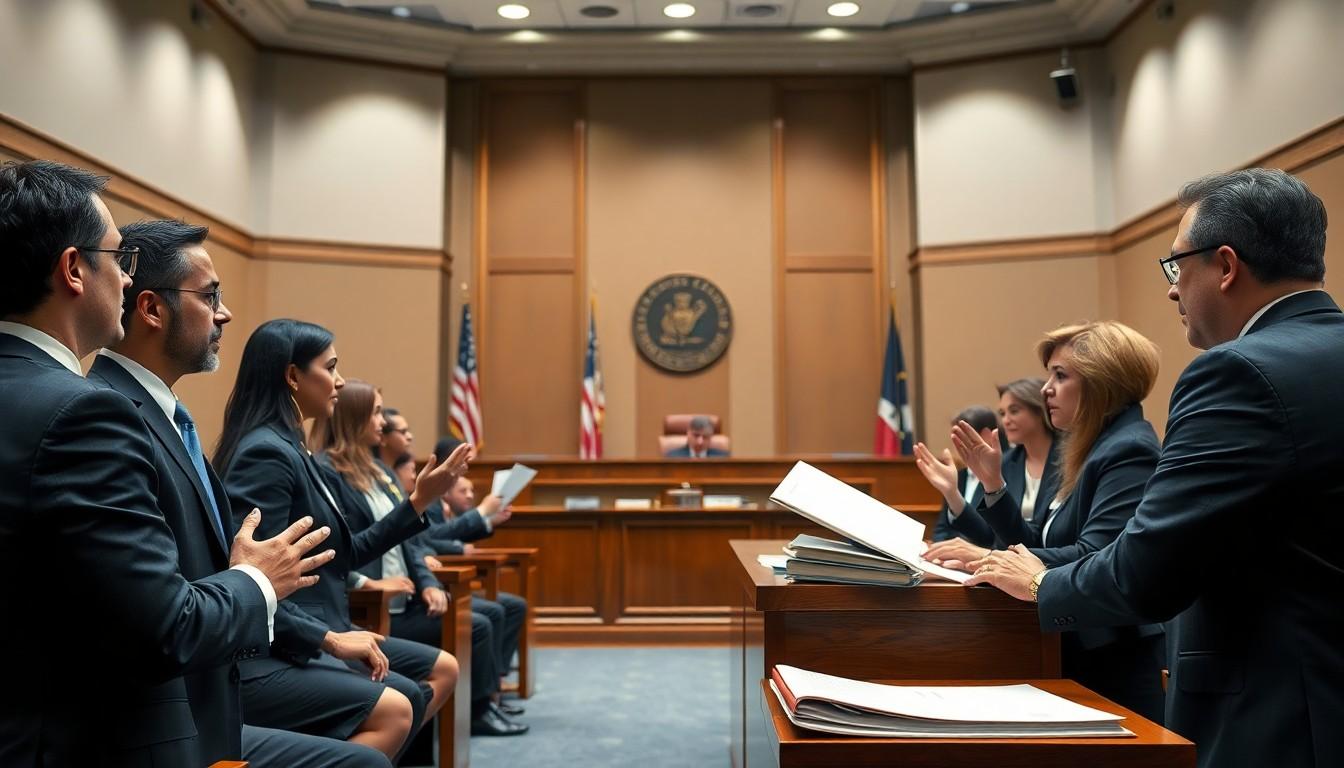Physical Address
304 North Cardinal St.
Dorchester Center, MA 02124

In the fast-paced world of sports, the game isn’t just played on the field; it’s also fought in the courtroom. From contract disputes to doping scandals, sports law is a thrilling arena where legal eagles tackle issues that affect athletes and fans alike. Whether it’s a high-profile case or a lesser-known dispute, the stakes are high, and the outcomes can change the game forever.
Recent changes in sports law significantly impact the industry. Legal professionals navigate a range of evolving issues, from regulations to athlete rights.
Legislation is shifting to enhance athlete safety and welfare. New guidelines address mental health, concussion protocols, and educational opportunities. States such as California have enacted laws mandating college athletes receive compensation for their name, image, and likeness. These developments reflect an increasing recognition of athletes’ rights and a move toward fairer treatment within the sports landscape. Many jurisdictions are examining increased protections against abuse and harassment, ensuring a safer environment for all participants.
Organizations face new challenges due to evolving legal standards. Increased scrutiny over employment contracts is common, with clauses relating to health and wellness gaining prominence. Athletes now navigate a complex environment where their rights as employees are bolstered. Legal disputes surrounding sponsorship agreements and endorsement deals also arise more frequently. These legal changes often lead to organizations reviewing internal policies to ensure compliance and protect against litigation. As the sports world continues to evolve, understanding these developments is essential for all stakeholders involved.

Case studies illustrate the complexities of sports law through significant legal battles and the valuable lessons derived from them.
Numerous high-profile legal disputes capture public attention and reshuffle the sports landscape. The NCAA vs. Alston case in 2021 revolved around student-athlete compensation for educational benefits. The U.S. Supreme Court ruled unanimously in favor of Alston, altering the way colleges address athlete financial support. Another notable case involved the NFL’s handling of domestic violence allegations against players. This led to changes in the league’s disciplinary practices and heightened scrutiny on player conduct. Such battles emphasize the critical role of legal precedent in shaping sports policy and governance, affecting organizations and athletes alike.
Legal disputes provide important insights into the management of sports organizations. Transparency in policies can mitigate potential conflicts regarding contracts and player conduct. Adaptations in negotiation strategies could lead to better outcomes for teams and athletes, particularly concerning sponsorships. The evolution of laws related to mental health and athlete compensation reflects a broader commitment to athlete welfare. Establishing clear communication channels between athletes and legal representatives fosters understanding, ensuring athletes’ rights are protected. Ultimately, learning from these cases can lead to improved practices and a more equitable sports environment.
Recent changes in sports law reflect evolving regulations and an increasing focus on athlete rights. Legal professionals actively shape the landscape through advocacy and policy adjustments.
Emerging issues in athlete rights include mental health protections and fair compensation. Laws are evolving to recognize and address athletes’ mental well-being, ensuring support systems are in place. Legislation now enables athletes to profit from their name, image, and likeness, fundamentally transforming collegiate sports. Increased transparency in contracts aims to safeguard athletes from exploitation and unfair practices. Additionally, legal frameworks are expanding to cover protections against discrimination and harassment within professional sports organizations.
Technology plays a significant role in modern sports law, influencing various aspects of the industry. Digital evidence is frequently used in contract negotiations and dispute resolutions. Analytical tools assist lawyers in assessing compliance with regulations, offering data-driven insights into legal outcomes. Moreover, advancements in wearable technology raise new questions regarding privacy and data ownership. E-sports have also prompted unique legal considerations, necessitating regulations tailored to the growing industry. Adapting to these tech-driven changes enhances legal strategies within sports law.
Sports law features a variety of key players who significantly influence the legal landscape of athletics. Legal professionals, organizations, and influential figures dedicate their efforts to shaping policies that affect athletes and teams.
Top law firms play a crucial role in the sports industry. Firms such as Skadden, Arps, Slate, Meagher & Flom LLP and Proskauer Rose LLP focus on issues like contract negotiations and compliance with sports regulations. These legal teams manage high-profile litigation and provide guidance regarding sponsorship agreements. Arbitrations led by these firms help resolve disputes effectively while protecting clients’ interests. Many of these firms actively engage in advocacy for athlete rights, further enhancing their reputation within the sports legal community.
Significant figures in sports law governance contribute to policy development and legal reforms. Individuals like Adam Silver, NBA Commissioner, influence discussions around athlete welfare and social justice initiatives. Meanwhile, NCAA President Charlie Baker addresses challenges related to student-athlete compensation and compliance with evolving regulations. Legal experts such as Jeffrey Kessler advocate for athletes’ rights in landmark cases, setting important precedents. Collaboration among these influential individuals fosters a more equitable environment within sports, paving the way for progressive changes that benefit athletes and organizations alike.
The landscape of sports law is evolving rapidly with significant implications for athletes and organizations alike. Legal professionals are at the forefront of addressing pressing issues such as athlete rights and mental health protections. As regulations adapt to modern challenges the commitment to fair treatment and welfare is becoming increasingly evident.
Key legal battles and emerging trends underscore the importance of transparency and effective communication in the sports industry. The collaboration among influential figures and law firms is fostering a more equitable environment that benefits all stakeholders. Staying informed about these developments is crucial for navigating the complexities of sports law and ensuring a fair future for athletes and organizations.